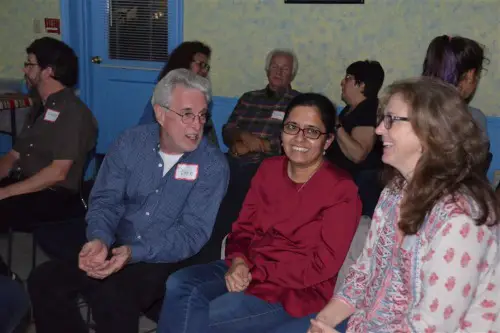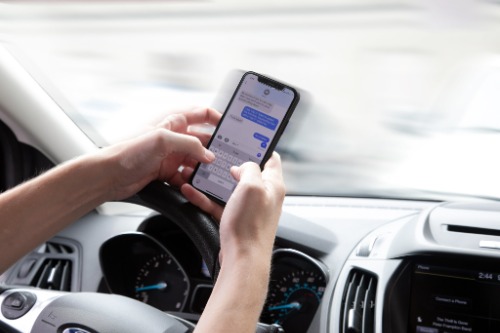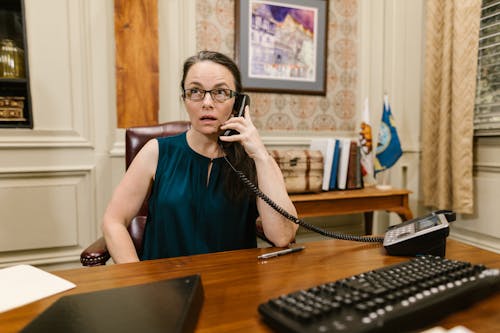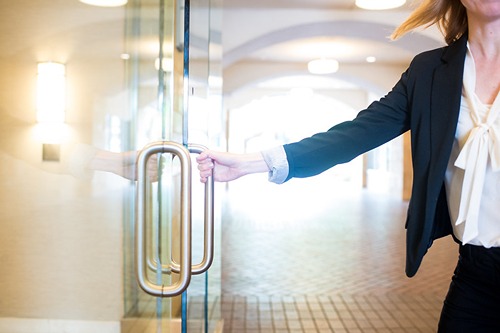1. “We should totally catch up soon!”

Americans often say this as a polite way to end an interaction without committing to an actual hangout. It’s a social cushion that helps avoid awkward goodbyes or hurt feelings. The phrase signals friendliness, even if there’s no intention to follow through. It’s especially common in workplace or old-friend encounters where both parties know it’s unlikely to happen.
It persists because American culture values friendliness and approachability, even in fleeting relationships. People prefer to appear warm rather than distant, even when they’re just being polite. Studies on American social norms show that indirect communication like this helps maintain social harmony. In short, it’s less about deception and more about keeping the mood upbeat.
2. “Let’s do lunch sometime.”

This one usually means, “I’d rather not, but it’s nice to see you.” It’s a go-to exit line in business settings or when bumping into casual acquaintances. Saying “let’s do lunch” projects openness and sociability, which are prized in American professional culture. However, unless a specific time and date follow, it’s rarely an actual plan.
The phrase works because it buys emotional comfort for both people. It keeps things light while signaling no hard feelings. Americans are often taught to avoid direct rejection, so this euphemism softens the blow. It’s more about maintaining good vibes than making real commitments.
3. “I’m five minutes away.”

This small fib usually means “I haven’t left yet, but I feel bad about it.” In a country where punctuality is considered a sign of respect, this one helps mask lateness without causing tension. Saying you’re “five minutes away” lets you seem considerate, even when you’re not on time. It’s one of the most common white lies in American urban life.
Many people justify it as a harmless social lubricant. It helps them manage guilt while preserving their image as reliable. Interestingly, research shows Americans tend to overestimate how long “five minutes” really is when running late. So, while it’s not strictly honest, it’s culturally accepted shorthand for “I’m on my way.”
4. “I’m good, thanks!”

When someone asks “How are you?” the expected response in American small talk is quick and positive. “I’m good, thanks!” doesn’t necessarily reflect how someone actually feels—it’s more of a social script. People use it to keep things polite and efficient, not to open up emotionally. It’s an example of how Americans value optimism and emotional control in public spaces.
This phrase smooths interactions and prevents oversharing in casual settings. Most people don’t want deep emotional conversations in line at Starbucks. So, “I’m good” is a default that keeps exchanges pleasant and unintrusive. It’s a politeness norm rather than a literal statement of well-being.
5. “Traffic was awful!”

This is a classic excuse when someone shows up late or seems flustered. It works because traffic is a universally relatable frustration in most American cities. Whether true or not, it’s an easy scapegoat that shifts blame to external factors. Few people will question it, which makes it an effective social deflection.
It’s not just about avoiding accountability—it’s about saving face. In American culture, punctuality is valued, but so is empathy for shared struggles like traffic. Saying this lets both parties avoid confrontation. It keeps small talk light and prevents an awkward apology spiral.
6. “I love your outfit!”

Complimenting someone’s clothes or appearance is a standard icebreaker in the U.S. Even when the admiration isn’t fully genuine, it helps establish a friendly tone. Americans often use compliments as social tools, not literal assessments. The goal is to create warmth and connection, especially in short or awkward encounters.
This habit stems from a cultural emphasis on positivity and self-presentation. Compliments make both parties feel good and ease conversational tension. Studies on American communication show that flattery, when used sparingly, increases likability. It’s less about deception and more about reinforcing friendliness norms.
7. “I’ve been so busy!”

This phrase often masks disinterest or avoidance. When someone says this after a long silence, it usually means “I didn’t prioritize you, but I don’t want to seem rude.” It’s a gentle way to explain distance without creating conflict. It also taps into the cultural ideal that being busy equals being successful.
In America’s hustle-oriented culture, “busy” is practically a badge of honor. Saying this preserves self-image while dodging emotional vulnerability. It also makes the other person less likely to push for a deeper reason. It’s polite deflection dressed up as a work ethic.
8. “I was just about to call you!”

This one usually pops up when someone realizes they forgot to reach out. It’s an instinctive way to save face and seem considerate. Americans often use it to soften the embarrassment of neglect. It’s a quick fix to restore social balance after a lapse in communication.
It’s so ingrained that most people recognize it for what it is—a harmless fib. Still, it serves a purpose: preserving mutual respect and avoiding awkwardness. In American politeness culture, intention often matters more than literal truth. So, saying you “were just about to call” is more about good manners than honesty.
9. “No worries, it’s fine!”

Americans say this even when something does bother them. It’s a default reaction meant to diffuse tension and avoid confrontation. Direct confrontation is often seen as impolite, especially in casual settings. So, this phrase signals forgiveness, even if it’s not entirely genuine.
It’s part of what communication experts call “positive politeness strategies.” These help maintain group harmony by prioritizing emotional comfort. People use this to keep relationships smooth, especially with acquaintances or coworkers. It’s not lying so much as managing social peace.
10. “I was just leaving!”

This phrase helps someone gracefully exit an uncomfortable or dull interaction. It suggests coincidence rather than avoidance. Americans often use it to spare the other person’s feelings or to seem polite while ending a conversation. It’s an elegant escape hatch wrapped in courtesy.
The beauty of this fib is that it feels considerate rather than cold. It gives both parties a way out without awkwardness. In a culture that values friendliness, abrupt exits can feel rude. So this phrase keeps the illusion of mutual goodwill intact.
11. “It’s so great to see you!”

Even if it’s not entirely true, this phrase is a friendly opener in American small talk. It helps maintain a positive tone, especially in unexpected or mildly uncomfortable reunions. The emphasis is on enthusiasm, not sincerity. Most people recognize it as a polite formality, not an emotional truth.
It’s used because Americans are culturally conditioned to smile through awkward moments. Being overtly warm is seen as socially skilled, not fake. This habit reflects the national preference for optimism and approachability. In other words, it’s a feel-good social lubricant.
12. “I’ll let you get back to it.”

This is the polite way to end a conversation without admitting you want to leave. It frames your exit as being considerate of the other person’s time. Americans use it to avoid seeming abrupt while still reclaiming their own. It’s an indirect way to say, “I’m done here,” without sounding rude.
It thrives because it keeps social interactions efficient yet pleasant. Americans value productivity and dislike wasting time, but they also value courtesy. This phrase strikes the perfect balance between both ideals. It’s small talk’s most graceful goodbye.
This post 12 Polite Lies Americans Tell to Avoid Small Talk was first published on American Charm.


